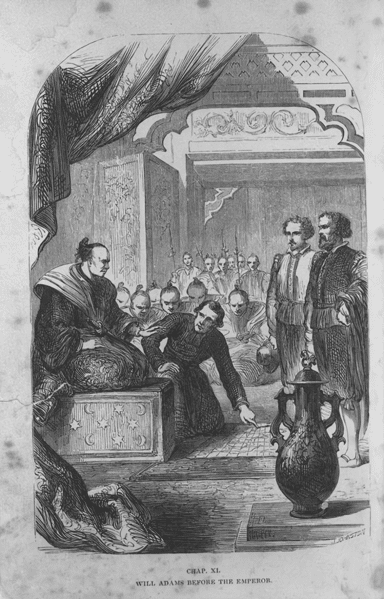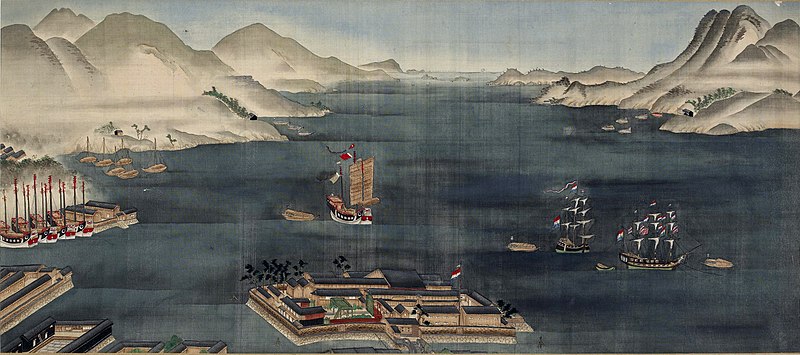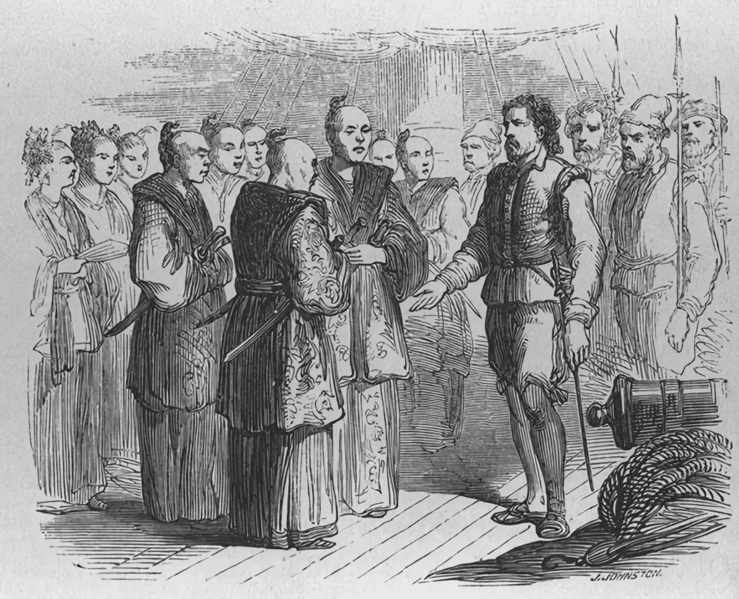Born in Gillingham, England, around 1564, Adams, like Blackthorne, craved adventure. He honed his seafaring skills in the Royal Navy before joining a Dutch expedition in search of a northeast passage to Asia. Little did he know, that he would never return to the UK nor Europe.
The Land of The Rising Sun
Shipwrecked off the coast of Japan in 1600, Adams and his crew were initially treated with suspicion by the warlord Tokugawa Ieyasu. Like in “Shogun”, Portuguese Jesuits claimed that William Adams and his crew were pirates and ought to be executed. Unlike the fictional Blackthorne’s initial defiance, Adams, a skilled navigator and engineer, quickly impressed Ieyasu with his knowledge. This, along with the rising power of European firearms (which Adams possessed), led to Ieyasu recognising Adams’ potential.

William Adams before Shogun Tokugawa Ieyasu. Public domain, via Wikimedia Commons
Luck & Skill
Tokugawa Ieyasu later became Shogun, unifying Japan under his clan, thus increasing Adams’ influence on all of Japan. He became his main translator, replacing Portuguese Jesuits, and a trusted advisor, influencing trade policies and even overseeing the construction of Japan’s first Western-style ships, a project that revolutionized Japanese naval technology. He was granted land, a samurai stipend, and even a Japanese wife.
Letters he wrote, advocating for trade with England and Holland, became instrumental in opening limited commercial ties with the West. Thus ending the Portugiese monopoly on all things Japanese.

Painting of Japanese and Dutch trade on Dejima (in Nagasaki), 1820. Public domain, via Wikimedia Commons.
Perfect Isolation
However, Adams’ influence also inadvertently contributed to a shift in Japan’s foreign policy. The influx of European traders, coupled with reports of Spanish missionary ambitions in Asia, raised concerns about potential colonization. His knowledge of European politics and potential military power likely fueled Ieyasu’s growing apprehension. Though Adams’ himself advocated for peaceful trade, his presence became a symbol of the potential threat posed by the West. This, along with internal power struggles and a desire for national isolation, ultimately led to the implementation of Sakoku – the鎖国 (sakoku), or “closed country” policy – in the mid-17th century.
Legacy
While not as action-filled as John Blackthorne in “Shogun”, the real life of Adams’ is an enthralling tale of a man who had tremendous influence on Japan, and who through luck and skill, became a bridge between East and West, forever etching his name in the annals of Japanese history.

